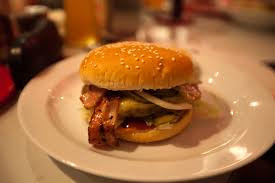Menu
Weight loss
Hormones
Sex
EXPLORE
MEET NU IMAGE MEDICAL
TREATMENTS
MEET NU IMAGE MEDICAL
TREATMENTS
MEET NU IMAGE MEDICAL
Cheat Meals



A common misconception that many dieters have is that once you start your diet you have to stick with it forever, and even the slightest misstep will essentially be a reset on all of the hard work you put in up to that point, but that's simply untrue. An occasional step back from your diet to enjoy a delicious meal won't keep you from getting into better shape, in fact, many nutrition experts advocate what's called the 90/10 rule.
The 90/10 rule means that 90% of the time you should eat according to your specific goal-based nutrition plan, and 10% of time you can indulge in something that is not on the diet. If you consume cheat meals this way, you won't derail your fat loss or fitness goals.
Of course there is nuance involved with this, as nothing is that simple. Post workout is the best time to get your cheat meal in, as the cheat meal itself has a higher chance of being used by your exhausted muscles instead of being stored as fat. Even a low-intensity workout can allow your body to use more carbs that would otherwise be turned into and stored as fat.
While there's no single research study that says cheat meals speed up your metabolism, as many people like to say, eating them can certainly help you mentally. Let's admit it, it's tough to be on a diet twenty-four hours a day, seven days a week without cheating. Downright demoralizing at some point, especially if you're dieting for 12 weeks or longer.
A little junk food can go a long way in keeping you motivated.
As long as you are following the 90/10 rule, and for most of the week are eating as your diet plan has laid out for you, 1-2 cheat meals a week certainly won't do much damage.
There are incorrect ways of going about a cheat meal, though. Cheat meals are meant to satisfy an urge for a taste, not fill your stomach. A cheat meal is supposed to be a meal, not a whole day or a splurge at an all you can eat buffet. It's important that you never let the 10% of cheating grow to more than that.
How you cheat matters.
For example, the biggest mistakes that people make during their cheats tend to be:
Cheating too frequently.
Eating too much in a cheat meal.
Indulging in cheat days, not meals.
Eating too much dietary fat.
Drinking too much alcohol.
Quite simply, the bottom line is that you can easily achieve the body or goal you've set for yourself on this dietary cycle without completely cutting yourself off from the foods you enjoy. You don't have to starve yourself, and you don't have to kill yourself with cardio. Follow the majority of your diet most of the time, cheat properly when you cheat, and you'll have the pounds falling off in no time.
This article is for informational purposes only and does not constitute medical advice. The information contained herein is not a substitute for and should never be relied upon for professional medical advice. Always talk to your physician about the risks and benefits of any treatment. Nu Image Medical may not offer the medications or services mentioned in this article.
